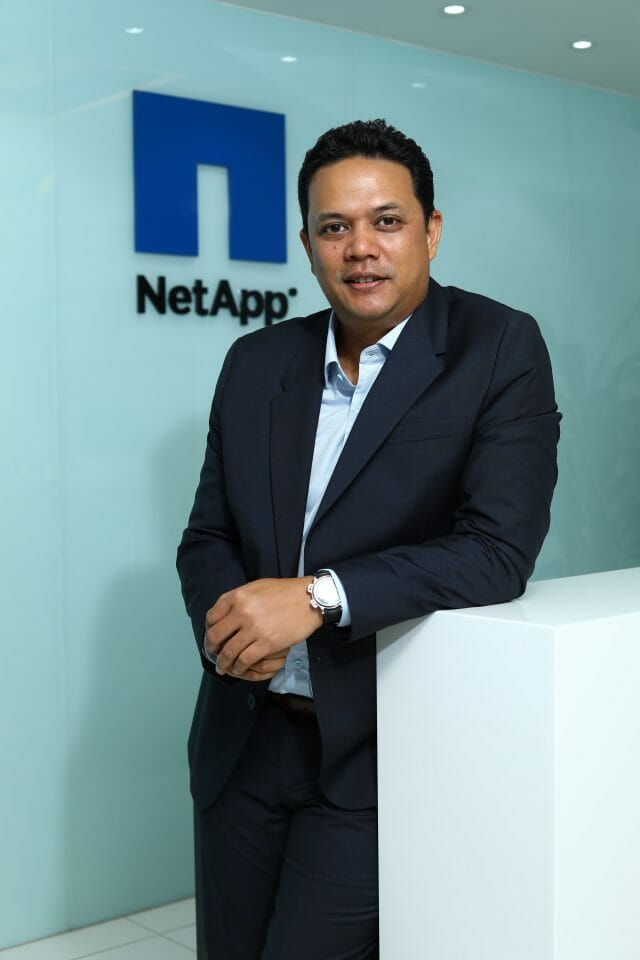By Poovenraj Kanagaraj
“One of the biggest changes that businesses experienced during the MCO was digital transformation, which they either had to start or accelerate during the period,” says Azrin Shukor, NetApp Country Manager for Malaysia and Brunei, who observed the changes faced by businesses and clients in the region.
With social distancing and telecommuting becoming a more permanent option for employees in Malaysia, Azrin believes that this will be the case for the foreseeable future and businesses need to change to adapt to the new reality.
As Malaysia enters the recovery stage of its battle against the Covid-19 outbreak, remote-working has become an essential part of companies across the country, as it was presented as the only way to keep operations going throughout the MCO period.
During the transition, companies had realised that digital transformation was an essential part in making it a success.
“For businesses to enjoy a successful digital transformation experience, they need to invest into the right technology solutions that enable them to support remote workers effectively, plan for data and storage capacity optimally,” Azrin tells Business Today, as he believes that this will ensure that all business critical applications are available to remote workers and performs exceptionally.
“In fact, even our own customers have been investing a lot more into remote-working solutions as they have seen their effectiveness, both in helping them drive businesses continuity during the pandemic and ensuring that they are better prepared for future crises,” Azrin says.
Technology, he says, has also changed the way organisations communicate and how they drive decisions remotely. “People can be in ten different locations and make decisions together without physically sitting in the same boardroom anymore,” he pointed out.
At NetApp Malaysia, employees have always had the flexibility to work from home or remotely as well as the autonomy to plan and manage their schedules accordingly, hence the transition during MCO was quick.
According to Azrin, the hybrid cloud data services and data management company enables its employees to work from anywhere and anytime through technologies such as cloud-based End User Computing (EUC) and Virtual Desktop Infrastructure (VDI).
“Providing our employees with this flexibility is no longer just a perk but a necessity to attract and retain a more diverse and inclusive talent pool.”
“At NetApp, beyond making sure that employees have the technological tools to perform their work remotely, we are also committed to making sure they are happy and maintain their connections with their customers, partners and colleagues,” Azrin tells Business Today.
Some of these efforts included regular e-coffee sessions between the sales team and their customers, regular online training sessions which included interactive games and continuous webinars with partners and customers to discuss key issues relevant to their business and ways to optimise their product and solutions.
The company’s acquisition of Talon, a next generation software-defined storage solutions provider, had helped it to solve customers’ remote office and branch office challenges through better file sharing.
“This has been done by enabling file server consolidation into a secure, globally accessible file system on our public cloud platform for our employees and customers,” he says.
In terms of preparing against the Covid-19 impact, NetApp had started their planning early on, as part of their efforts to prepare against the outbreak that was rapidly spreading in the region.
“In January, we put together a company-wide crisis management team to execute our global Business Continuity Plan and prepare to mitigate the Covid-19 impact. By the time the MCO was announced, we were able to continue to deliver products and services and minimise disruptions to customers and partners, all while keeping our people safe,” Azrin said.
NetApp products’ final assembly and test is done outside of China thus allowing the company more time to react and plan when the disease first broke out. According to Azrin, they had been working closely with their component suppliers, manufacturing partners, as well as service and logistics partners to monitor the evolution of the situation and implement mitigation plans.
“Moving forward, we are putting a process in place to enable customers to order their parts directly from us, instead of through a third party. This will help ensure availability and faster delivery,” he shared.
The situation, he says, is still evolving and it is too early for businesses to say with certainty how long their recovery will take. He further highlighted that it will also differ based on the size of the organisation, industry, location, the nation’s economic situation and the mitigation measures that businesses put in place.
“Covid-19 was a black swan event unlike anything we have ever experienced so it would be difficult to say whether how we react to the current situation will determine our success in future crises,” Azrin tells Business Today.
Constant monitoring, early planning and fact action, he says have enabled NetApp to face the crisis effectively to date.
“We are also continuously assessing and refining our BCP strategy to adapt to the changes in Malaysia and around the world. Therefore, we hope that this will put us in a great position to weather the storm again, should a second wave hit.”
He also opines that the Malaysian government should look into incentivising business to innovate and create new technology solutions that help organisations across the country build more crisis resilient business models.
“For example, moving towards a more cost-effective hybrid multi-cloud ecosystem for business applications, data software and services,” he says.
“The government should also look to encourage smaller business to fully embrace digital transformation through grant programmes, training support and talent development,” he said.











